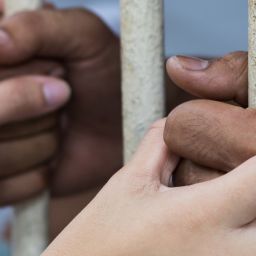Food insecurity, a pervasive issue in low-income communities, is not only a matter of sustenance but also has significant implications for various aspects of public health, including addiction recovery. The fight against addiction is a complex and multifaceted battle. In Baltimore, where poverty rates are high, understanding the interplay between food insecurity and addiction recovery is crucial for developing effective interventions and support systems for vulnerable populations. While the path to recovery requires dedication and support, many individuals face an often-overlooked obstacle: food insecurity. This article explores the critical link between food deprivation and addiction recovery, focusing on the challenges faced by residents of Baltimore’s low-income communities.
The Intertwined Struggles
In Baltimore’s low-income communities, individuals often face the dual challenges of lack of food and addiction. Food deprivation, defined as limited or uncertain access to affordable, nutritious food, creates a significant barrier to successful addiction recovery. These issues are deeply interconnected and can exacerbate each other’s effects, posing significant barriers to individuals seeking to break the cycle of poverty and addiction. Individuals struggling with addiction often experience nutritional deficiencies, impacting their physical and mental well-being. Hunger pangs can trigger cravings, weaken resolve, and exacerbate the psychological stress associated with withdrawal symptoms, while addiction recovery involves overcoming substance abuse and maintaining sobriety. This can lead to increased susceptibility to relapse, hindering progress in recovery programs.
Understanding Food Insecurity
Baltimore, unfortunately, carries a heavy burden of both food security and addiction. Many low-income residents in the city live in “food deserts,” lacking access to fresh, affordable produce and groceries. This forces them to rely on readily available, often highly processed and unhealthy foods, further compromising their health and hindering their ability to cope with addiction.
Causes of Food Insecurity
Food deprivation in Baltimore’s low-income communities is exacerbated by joblessness, perpetuating the cycle of poverty in Baltimore. It arises from a complex interplay of socio-economic factors, including poverty, unemployment, inadequate social support, and limited access to affordable, healthy food options. Systemic issues such as racial inequality and disinvestment in low-income neighborhoods further contribute to the prevalence of food insecurity.
Consequences of Food Insecurity
In Baltimore’s low-income communities, lack of food intertwines with poverty, affecting jobless people and exacerbating substance abuse issues. The consequences of food security extend beyond hunger and malnutrition. Individuals experiencing food insecurity are more likely to suffer from poor physical and mental health outcomes, including chronic diseases, anxiety, and depression. Moreover, food insecurity can perpetuate cycles of poverty and inequality, making it difficult for individuals to escape from the grips of addiction.
The Relationship Between Food Insecurity and Addiction
How Food Insecurity Can Contribute to Addiction
Lack of food in Baltimore, particularly prevalent in low-income communities, intertwines with the struggles of jobless people and poverty in the area. In such environments, where access to affordable and nutritious food is scarce, individuals may resort to substance abuse as a coping mechanism. This perpetuates a vicious cycle, as addiction further undermines efforts to alleviate food insecurity by diverting resources away from essentials like food and housing. Addressing food insecurity is therefore crucial in holistic approaches to addiction recovery and poverty alleviation in Baltimore.
Impact of Addiction on Food Security
Conversely, addiction can exacerbate insecurity of food in Baltimore by impairing individuals’ ability to secure stable employment, maintain healthy relationships, and manage their finances effectively. Substance abuse can lead to job loss, strained familial relationships, and financial instability, all of which contribute to the cycle of poverty and food insecurity in low-income communities. Moreover, addiction often consumes significant financial resources, leaving individuals with limited funds to purchase nutritious food or access essential services. Addressing addiction and promoting effective addiction recovery programs are therefore crucial steps in breaking this cycle and fostering greater food security in the city’s low-income neighborhoods.
Solutions and Interventions
Community-Based Approaches to Address Food Insecurity
Community organizations and non-profits play a vital role in addressing food related issues and supporting addiction recovery in Baltimore’s low-income communities. Initiatives such as food banks, community gardens, and meal programs provide essential resources and support to individuals and families facing hunger and substance abuse issues. Additionally, these organizations often offer counseling services, job training programs, and access to healthcare, addressing the underlying causes of poverty and addiction. By fostering a sense of community support and empowerment, these initiatives contribute to the overall well-being and resilience of individuals affected by food insecurity and substance abuse in Baltimore.
Integrating Food Assistance into Addiction Recovery Programs
Integrating food assistance programs into addiction recovery programs can help address the underlying issues of food while supporting individuals in their journey toward sobriety. By providing access to nutritious meals, cooking classes, and food vouchers, these programs address the nutritional needs of individuals in recovery and promote overall health and well-being. Moreover, this holistic approach recognizes the interconnected nature of food insecurity, poverty, and addiction, fostering a supportive environment where individuals can focus on their recovery while receiving essential support for their basic needs.
Seeking Professional Help?
If you or someone you know is battling addiction in Baltimore’s low-income areas, we’re here to help. Our rehab center provides tailored support to help you break free from substance abuse. Reach out today to start your journey to recovery.
Conclusion
Food insecurity poses a significant challenge to addiction recovery in Baltimore’s low-income communities, perpetuating cycles of poverty, inequality, and substance abuse. Addressing food insecurity requires a multi-faceted approach that acknowledges the complex interplay between socio-economic factors and individual well-being. By implementing community-based interventions and integrating food assistance into addiction recovery programs, we can support individuals in breaking free from the cycle of addiction and achieving long-term health and stability.













